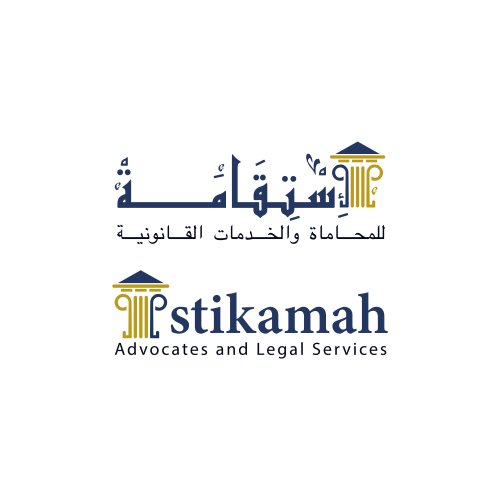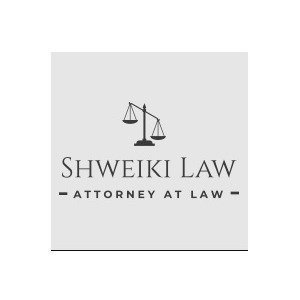Best Conveyancing Lawyers in Ramallah
Share your needs with us, get contacted by law firms.
Free. Takes 2 min.
Free Guide to Hiring a Real Estate Lawyer
List of the best lawyers in Ramallah, Palestine

Istikamah For Advocates And Legal Services - استقامة للمحاماة والخدمات القانونية
15 minutes Free ConsultationAbout Conveyancing Law in Ramallah, Palestine
Conveyancing is the legal process of transferring property ownership from one party to another. In Ramallah, Palestine, this process is crucial for residential, commercial, or land transactions. Conveyancing law governs how property sales and transfers are documented, who is recognized as the rightful owner, and ensures that transactions comply with all local regulations. Due to the unique legal environment in Palestine, alongside political and land registration complexities, conveyancing in Ramallah requires special attention to detail and legal expertise.
Why You May Need a Lawyer
Conveyancing can be complicated, especially given the mix of Ottoman, British Mandate, Jordanian, and Palestinian laws applicable in Ramallah. You may need a lawyer in several common situations, such as:
- Buying or selling a property and wanting to ensure all legal requirements are met
- Are unsure about the ownership status or title deeds of a property
- Need to draft or review sale agreements and official documents
- Face disputes or unclear boundaries with neighbors
- Want to ensure there are no debts or encumbrances on the property
- Have inherited property and need to transfer ownership
- Are a foreign national or Palestinian diaspora navigating property laws in Ramallah
A conveyancing lawyer ensures your interests are protected while the transaction is efficiently and legally completed.
Local Laws Overview
Property law and conveyancing in Ramallah are shaped by a blend of legal traditions. Key aspects to consider include:
- Legal Framework - Laws governing conveyancing are drawn from Ottoman land law, British Mandate ordinances, Jordanian law, and modern Palestinian statutes.
- Property Registration - Most urban properties within city boundaries are registered with the Land Registry (Tabu). Unregistered rural lands or refugee properties might have different requirements.
- Permission and Due Diligence - Buyers must check the property's registration, ensure there are no liens, and obtain necessary approvals.
- Official Documentation - All sales and transfers must be documented in writing. These documents often need notarization and registration at the court or the Land Registry Office.
- Inheritance and Gifts - Property transfers through inheritance or gifting are subject to additional procedures, especially for non-direct heirs.
- Foreign Ownership - Non-residents or foreign individuals must obtain permits from the related authorities and comply with residency and national security laws.
Frequently Asked Questions
What is conveyancing and why is it important in Ramallah?
Conveyancing is the legal process of transferring property ownership. It ensures that the buyer receives a valid title and that all previous encumbrances or debts are cleared. It is especially important in Ramallah due to unique local laws and the need for clear documentation.
How do I verify property ownership in Ramallah?
Ownership is verified through the Land Registry (Tabu) where you can obtain a property deed (Sanad Milkiya). For unregistered lands, additional research and local council records might be required.
Are there restrictions on foreigners buying property in Ramallah?
Yes, foreigners and residents from abroad often need special permits from the Palestinian Authority. The process can be more complex and may face limitations due to national regulations.
What taxes or fees are associated with property transfers?
Buyers and sellers must pay registration fees, property transfer tax, and sometimes municipal taxes. The exact amounts depend on property value and location.
What happens if there is a dispute over boundaries or ownership?
Disputes are resolved through legal proceedings in local courts. Legal representation is highly recommended, as defective documentation or historic disputes are common.
Can I purchase unregistered or 'open title' land?
While possible, unregistered land presents higher risk. Legal due diligence is essential, and additional documentation from local municipalities or village councils might be required.
Are written sale contracts mandatory?
Yes, written contracts are a legal requirement. These usually need to be notarized and submitted to the Land Registry and local court for official transfer of ownership.
How long does the conveyancing process take?
It can vary from several weeks to a few months, depending on the property type, location, and if there are any legal complications or disputes.
What is the role of the notary public in Ramallah conveyancing?
The notary public verifies and authenticates documents, ensuring the identities of parties and legality of the conveyance agreement required for formal registration.
Do I need a lawyer if the sale is between family members?
A lawyer is advised even in family transactions to avoid issues with documentation, inheritance rights, or future disputes, and to ensure compliance with local laws.
Additional Resources
For legal assistance and more information regarding conveyancing in Ramallah, the following resources can be useful:
- Palestinian Land Authority (PLA) - Responsible for land registration and property titles
- Ramallah Municipality - Provides guidance on zoning, local building regulations, and municipal taxes
- Ministry of Justice - Involved in certifying legal documents and handling property disputes
- Local licensed law firms - Offer specialized conveyancing and real estate legal services
- Real estate offices and Tabu offices in Ramallah - Can provide property records and advice on process
Next Steps
If you need legal assistance in conveyancing in Ramallah, Palestine, consider the following steps:
- Collect all available property documents, including deeds, maps, and previous contracts
- Consult with a local lawyer who specializes in real estate and conveyancing
- Conduct a property search at the Land Registry (Tabu) to check ownership and ensure the property is free of disputes or restrictions
- Draft or review a sale contract with your lawyer, ensuring all due diligence is completed
- Proceed with notarization and registration of the transfer with the relevant authorities
- Settle any taxes or fees associated with the transfer
Taking these steps with the assistance of a qualified legal professional can help protect your investment and ensure a smooth property transaction in Ramallah.
Lawzana helps you find the best lawyers and law firms in Ramallah through a curated and pre-screened list of qualified legal professionals. Our platform offers rankings and detailed profiles of attorneys and law firms, allowing you to compare based on practice areas, including Conveyancing, experience, and client feedback.
Each profile includes a description of the firm's areas of practice, client reviews, team members and partners, year of establishment, spoken languages, office locations, contact information, social media presence, and any published articles or resources. Most firms on our platform speak English and are experienced in both local and international legal matters.
Get a quote from top-rated law firms in Ramallah, Palestine — quickly, securely, and without unnecessary hassle.
Disclaimer:
The information provided on this page is for general informational purposes only and does not constitute legal advice. While we strive to ensure the accuracy and relevance of the content, legal information may change over time, and interpretations of the law can vary. You should always consult with a qualified legal professional for advice specific to your situation.
We disclaim all liability for actions taken or not taken based on the content of this page. If you believe any information is incorrect or outdated, please contact us, and we will review and update it where appropriate.














